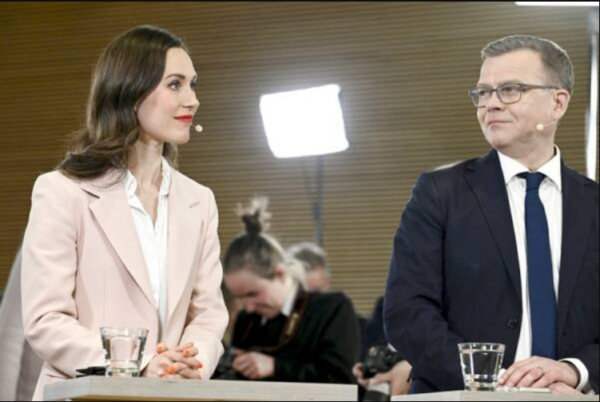On Sunday, Finland’s Sanna Marin conceded defeat in a fiercely contested election, abruptly ending the career of the millennial MP widely regarded as a global icon of progressivism.
In 2019, at the age of 34, Marin became the world’s youngest serving prime minister. She built a center-left coalition government composed of five parties led by women, four of whom were under 35 years old at the time.
Marin entered office as the world’s youngest serving prime minister in 2019 at the age of 34.
As the leader of the left-leaning Social Democrats, Marin was lauded for her public support of Ukraine during Russia’s full-scale invasion, opening the route for Finland to join NATO and guiding the Nordic nation’s response to the coronavirus outbreak.

Yet, after only one term as prime minister, Marin’s right-wing political opponents forced her into third position.
According to a translation, Marin added, “Today is a fantastic day since we performed well in the elections.”
“Congratulations are also extended to the other election victors, the Coalition Party and the Finns Party. The people have spoken. The Finnish people have cast their ballots, and it is always good to celebrate democracy.”
The Social Democrats of Marin earned 19.1% of the vote and increased their representation in the legislature.
The National Coalition Party, led by Petteri Orpo, came out on top with 20.8% of the vote, while the Finns Party won a record 20.1% of the vote.
Orpo, accompanied by supporters in a restaurant in the capital city of Helsinki, allegedly stated that the pro-business NCP will lead the formation of a new government.
Finland, a country in northern Europe with a population of around 5.5 million that shares borders with Sweden, Norway, and Russia, was just named the happiest country in the world for the sixth consecutive year.
“A defeat for feminist politics worldwide”
Women’s Equality Party, a feminist political party founded in the United Kingdom. In 2015, called the election outcome in Finland as a “setback for global feminist politics.”
“Sanna Marin proposed innovative parental leave policies and led a partnership with five other women – a lesson in collaborative politics,” the party tweeted.
During her term in office, opposition politicians attacked Marin for the coalition government’s public expenditure.
She was also in the heart of a domestic controversy after a video of her dancing at a party with Finnish celebrities during the height of Europe’s energy crisis was released. In an effort to diffuse the situation, Marin grudgingly consented to a drug test, which revealed no traces of illicit chemicals.
Ashok Swain, a professor of peace and conflict studies at Sweden’s Uppsala University, tweeted that Finland’s “rockstar PM” will be missed in global politics, drawing parallels to the abrupt departure of New Zealand’s Jacinda Ardern earlier this year.
“No influence on Finland’s stance for Ukraine or NATO membership,” stated Swain of Marin’s departure. Similar to Jacinda Ardern, Sanna Marin will be missed in world politics.
Ardern, another worldwide progressive hero, announced her resignation in mid-January, stating that she no longer felt she had “enough in the tank.”
At their first face-to-face meeting in November of last year, Finland’s Prime Minister Jyrki Marin and New Zealand’s Prime Minister Jacinda Ardern responded to a journalist’s comment that some people may have assumed they were meeting because they have a similar demographic.
At a news conference in Auckland, New Zealand, Marin responded to the question by stating, “We are meeting because we are prime ministers.”
In the meanwhile, Ardern said, “I wonder if anybody ever questioned Barack Obama and John Key whether they met due to their similar ages.”

